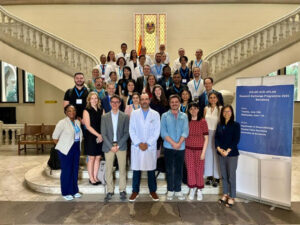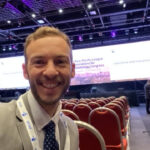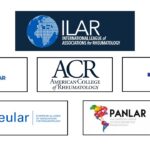 Insights into the ACR/EULAR/APLAR Exchange Program from this year’s participants
Insights into the ACR/EULAR/APLAR Exchange Program from this year’s participants
BARCELONA—One of the great joys of being part of a scientific community is that it truly is a community. Whether meeting colleagues from across a state, province or country, the ongoing exchange of ideas and knowledge allows for the establishment of novel projects and collaborations, yielding benefits for researchers, clinicians and patients, alike.
In June, a contingent of rheumatologists and researchers from around the world took part in the ACR/EULAR/APLAR Research Exchange Program, which was created with the goal of promoting the international transfer of clinical and research skills, expertise and knowledge within rheumatology. This year’s program began on June 10 and overlapped with EULAR 2025, June 11–14.
Participants in the program had many different reasons for wanting to take part in this exciting initiative. Azmad Kareem Bin Anwardeen, MBBS, MRCP, rheumatology fellow-in-training, Hospital Putrajaya, practices in Malaysia. He was motivated to apply for the program due to a strong desire to “gain international exposure, engage in cross-cultural academic discussions and foster long-term professional connections.”

ACR/EULAR/APLAR exchange group at the University of Barcelona medical campus.
Hadijat Makinde, PhD, research assistant professor, Northwestern University, Chicago, viewed the program as “a unique opportunity to step outside my research bubble and engage with rheumatology investigators from around the world.” She was especially drawn to the idea of learning how providers and scientists from different countries approach autoimmune disease concepts and knew that “the conversations and cultural exchanges would challenge and inspire me in ways a regular conference just couldn’t.”
Jison Hong, MD, clinical assistant professor of medicine, Division of Immunology & Rheumatology, Stanford University, Palo Alto, Calif., was drawn to the program because it “offered a unique opportunity to connect with peers from around the world who share similar research interests and clinical passions.” Dr. Hong also viewed the program as a chance to “gain fresh perspectives and build meaningful international relationships.”
Event Highlights
In the eyes of the Exchange Program participants, the conference had many highlights.
Dr. Anwardeen greatly enjoyed a plenary session on relapsing polychondritis from Arnaud Laurent, MD, PhD, clinical professor of medicine, Strasbourg University School of Medicine, France.
“Given the limited data available on relapsing polychondritis,” Dr. Anwardeen said, “Dr. Laurent did an excellent job summarizing the current evidence while sharing his personal tips and tricks for diagnosis and management—many of which you won’t find in any textbook.”


